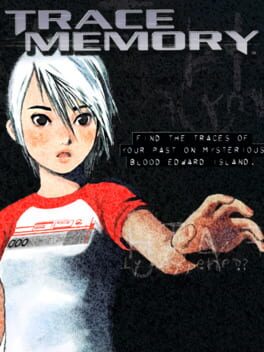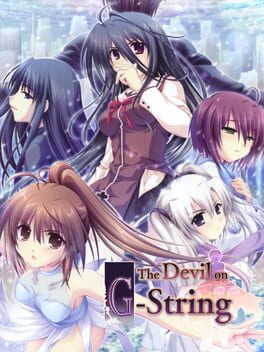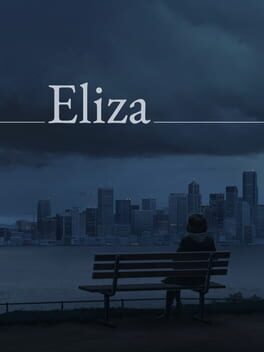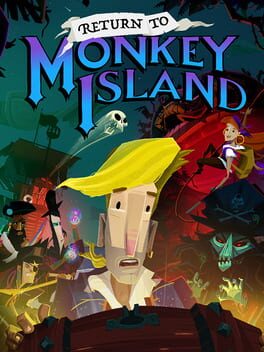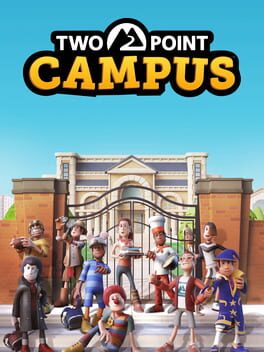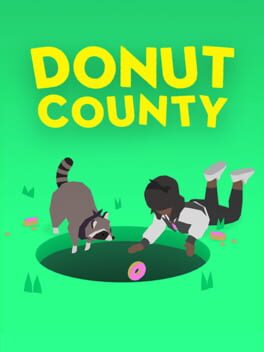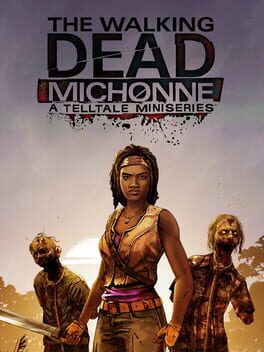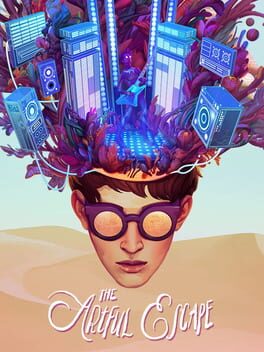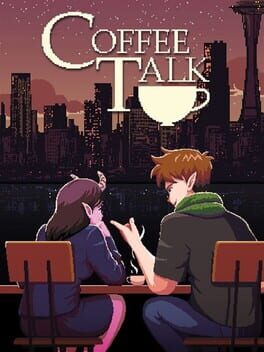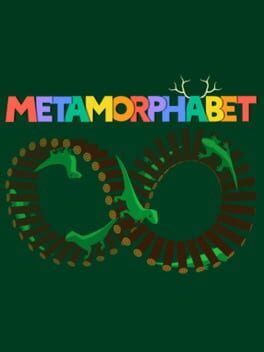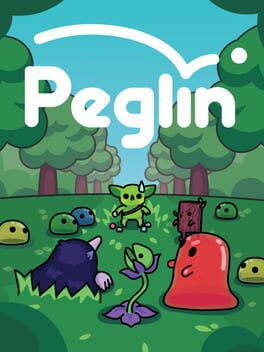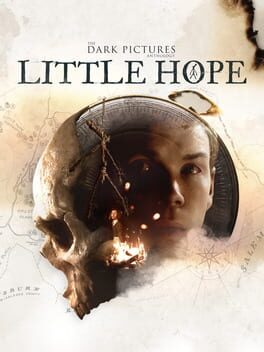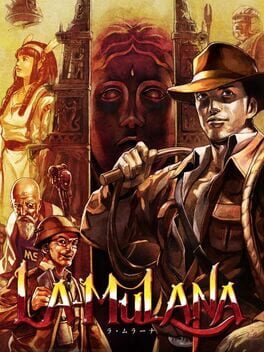Niandra
161 Reviews liked by Niandra
Trace Memory
2005
After discovering Hotel Dusk, I like many others became enamored by the mystique surrounding its developer, Cing: A tiny team that brought the absolute most out of both the DS and Wii, made 4 Nintendo-published games, and despite that died less than 10 years after being founded.
Out of those 4 games, Hotel Dusk is definitely the most well known, and I absolutely fell in love with it. Beyond the fascinating hardware uses and overall presentation, it was the mood and overall pacing of its story that captivated me. A game relishing in the mundane. Games like Shenmue and No More Heroes captivate me with how they use those chunks of silent, "uninteresting" gameplay to both further enhance the more exciting moments and immerse you more in their everyday worlds. Even Ace Attorney does it in a sense with its investigations.
Long story short: I wanted more Hotel Dusk and decided to try out Cing's first ever Nintendo-published game. And to make another long story short, whilst it definitely shows more rough edges and lack of focus compared to Hotel Dusk, the game's heart is still in the right place.
Its a quirky little game: The textboxes look right out of a flash game, the mouth movements can look flat-out creepy if you pay enough attention to them, and unlike Hotel Dusk most puzzles are moreso there to just...be puzzles, rather than have much of anything to do with the world. Its set up sort of similarly to old-school Resident Evil in that way, I guess. You get a mansion with an assortment of rooms and need to decode how to progress further into the house: Solving a puzzle in the living room gives you a key to a drawer in the office, et cetera.
What really made me draw the Resident Evil connection is the abundance of lore-nuggets sprinkled about: It uses its premise of having two characters with memory issues to let the player ponder over two mysteries at once. Its a neat way to handle the story over its short runtime. Outside of solving that mystery the story isn't all that special on paper, and honestly I mostly played this game as preparation to eventually be able to play Another Code R on Wii.
Yet even in those 5 little hours and all that crust you can definitely feel the Cing spirit here. The atmosphere of Blood Edward Island in general is fantastic, arguably better than Hotel Dusk, due both to the surprisingly large soundtrack as well as the absolutely brilliant use of the two-screen setups. Its straight-up one of the best Adventure game UI's I've ever used, having a 3D-modelled world on one screen as well as 2D stills of the island's most captivating viewpoints on the other. When paired with the music, it creates a kind of immersion I haven't really felt in any other game, and am sad to realize will probably never be seen in any future games given the 3DS' discontinuation. It really does help sell this abandoned mansion's eerieness to both be able to see it at large and see its more detailed spots at the same time.
What also helps with this is that, for as simple as the story is on the whole and as cutesy as the premise seems (A 14 year old goes investigating with her ghost best friend!!), it touches on some surprisingly dark yet very real subjects, with Ashley reacting accordingly. The writer of all four Cing games, Rika Suzuki, has always emphasized that Another Code is specifically about Ashley's mental state first and foremost, and I feel like these moments of discussing betrayal, suicide, abandonment and grief really tie the game together nicely. But really, what'll drive you through the game is its story and atmosphere, alongside the curiousity of how it'll use the DS hardware next.
With its puzzles feeling so deliberately designed to be "DS gimmicks" compared to the more grounded Hotel Dusk puzzles, it end up feeling somewhat self-aware in a really fun way, like "ooh yeah this puzzle is really clever of us", and you yourself cant do anything but go "yeahh youre right", even when they as puzzles are often not anything special. A lot of the time I'd even argue they're too cryptic for their own good.
The story at large is also like a puzzle in of itself, but with its aforementioned short runtime and constant new little pieces uncovered, alongside just generally pretty sweet little character moments, its very fun to just follow along with. Weird, grounded, silly, ominous, crusty, atmospheric: Another Code is most definitely able to be a lot of things in its runtime. At the end of the day I am still very glad I took the time to play it, if only for the memories it gave me.
Playtime: 5 hours
Key Word: Novelty
Out of those 4 games, Hotel Dusk is definitely the most well known, and I absolutely fell in love with it. Beyond the fascinating hardware uses and overall presentation, it was the mood and overall pacing of its story that captivated me. A game relishing in the mundane. Games like Shenmue and No More Heroes captivate me with how they use those chunks of silent, "uninteresting" gameplay to both further enhance the more exciting moments and immerse you more in their everyday worlds. Even Ace Attorney does it in a sense with its investigations.
Long story short: I wanted more Hotel Dusk and decided to try out Cing's first ever Nintendo-published game. And to make another long story short, whilst it definitely shows more rough edges and lack of focus compared to Hotel Dusk, the game's heart is still in the right place.
Its a quirky little game: The textboxes look right out of a flash game, the mouth movements can look flat-out creepy if you pay enough attention to them, and unlike Hotel Dusk most puzzles are moreso there to just...be puzzles, rather than have much of anything to do with the world. Its set up sort of similarly to old-school Resident Evil in that way, I guess. You get a mansion with an assortment of rooms and need to decode how to progress further into the house: Solving a puzzle in the living room gives you a key to a drawer in the office, et cetera.
What really made me draw the Resident Evil connection is the abundance of lore-nuggets sprinkled about: It uses its premise of having two characters with memory issues to let the player ponder over two mysteries at once. Its a neat way to handle the story over its short runtime. Outside of solving that mystery the story isn't all that special on paper, and honestly I mostly played this game as preparation to eventually be able to play Another Code R on Wii.
Yet even in those 5 little hours and all that crust you can definitely feel the Cing spirit here. The atmosphere of Blood Edward Island in general is fantastic, arguably better than Hotel Dusk, due both to the surprisingly large soundtrack as well as the absolutely brilliant use of the two-screen setups. Its straight-up one of the best Adventure game UI's I've ever used, having a 3D-modelled world on one screen as well as 2D stills of the island's most captivating viewpoints on the other. When paired with the music, it creates a kind of immersion I haven't really felt in any other game, and am sad to realize will probably never be seen in any future games given the 3DS' discontinuation. It really does help sell this abandoned mansion's eerieness to both be able to see it at large and see its more detailed spots at the same time.
What also helps with this is that, for as simple as the story is on the whole and as cutesy as the premise seems (A 14 year old goes investigating with her ghost best friend!!), it touches on some surprisingly dark yet very real subjects, with Ashley reacting accordingly. The writer of all four Cing games, Rika Suzuki, has always emphasized that Another Code is specifically about Ashley's mental state first and foremost, and I feel like these moments of discussing betrayal, suicide, abandonment and grief really tie the game together nicely. But really, what'll drive you through the game is its story and atmosphere, alongside the curiousity of how it'll use the DS hardware next.
With its puzzles feeling so deliberately designed to be "DS gimmicks" compared to the more grounded Hotel Dusk puzzles, it end up feeling somewhat self-aware in a really fun way, like "ooh yeah this puzzle is really clever of us", and you yourself cant do anything but go "yeahh youre right", even when they as puzzles are often not anything special. A lot of the time I'd even argue they're too cryptic for their own good.
The story at large is also like a puzzle in of itself, but with its aforementioned short runtime and constant new little pieces uncovered, alongside just generally pretty sweet little character moments, its very fun to just follow along with. Weird, grounded, silly, ominous, crusty, atmospheric: Another Code is most definitely able to be a lot of things in its runtime. At the end of the day I am still very glad I took the time to play it, if only for the memories it gave me.
Playtime: 5 hours
Key Word: Novelty
Trace Memory
2005
I don’t know if I would describe myself as a FAN of the long-running CW monster hunting show Supernatural, but I DID watch roughly nine or ten seasons of it, MOSTLY because I had friends who were super into it and I liked to hang out in their Supernatural-themed discord. I hope they’re all doing well. I think about them a lot. If you haven’t seen the show, it’s about these two guys, younger brother Sam and older brother Dean Winchester, whose mother was killed by a demon when Dean was a little kid and Sam was but a wee babe, which set their dad down the path of Self-Destructive Monster Hunting and he dragged his baby boys into that life with him. The dynamic in the early show is that after their dad goes missing, Dean, who has always enjoyed The Life, drags Sam back after he had successfully gotten out, and now they drive around mostly the rural American Midwest and every week they stop in a place where something mysterious has happened and then kill a ghost or a werewolf or something. Over the course of the first five season the show finds its groove, s a story arc emerges and is cleanly resolved, everyone likes it, and then the show very divisively continues for eleven more years. This is, I think, the simplest way I can lay this out. I will not get into the nuances of Supernatural fandom that’s not what we’re here for we all know how deep that well is I’m not gonna crawl out of it today, but I will say I think it is GENERALLY AGREED UPON that the middle years of the show are seen as the weakest, where we’re kind of treading water every year between our clearly defined apocalyptic early arc and the inklings of ending of the latter seasons. BUT there were always one or two really good episodes hidden in those really rough middle seasons that I eventually quit watching the show in the middle of, even for a show I didn’t like all THAT much at its best.
One episode in season nine, or maybe ten, I dunno, involved Dean getting a call from a boy’s home he spent time at as a teen about some ghost or something idk and they have to go banish it or whatever. And Sam is like wait when were you ever at a boy’s home and Dean says “OH YEAH I had completely forgotten that you didn’t know about this.” So the truth was that one summer when dean was like sixteen and Sam was like ten or whatever, their dad left them to go do a hunt somewhere, and Dean lost all their money OR SOMETHING (these details don’t matter to this story I promise) and then got caught trying to shoplift food for them, and opted to go to a like, Boy’s Reform School for a few weeks rather than juvie, because as far as anyone could tell he was like, a destitute teenager with no dad, because his dad sucks shit dude.
So when this all got sorted out his dad concocted this story that Dean was also away on a hunt or something to spare Sam’s feelings I guess? This is important, they never really get into why their dad didn’t want Sam to know, exactly. We can probably make a good guess, but we don’t know because he didn’t tell anybody. Sam learns this and he’s like, y’know 30 now or whatever so he doesn’t really care but as they’re leaving he does stop Dean and say “hey, why didn’t you ever tell me this?” and Dean just kind of shrugs and says “I dunno. Dad told me not to, and then the story became the story. I was sixteen.” And that’s all he has to say about it, and that’s all he really CAN say about it, but it’s also all he has to say about it. I don’t know if, at the end of the day, I would call Supernatural a great show, worth the sum of its many, many parts, but I do think it does some things really well, and one thing it almost always nailed was the way people can be just absolutely twisted up by people they love and look up to, the way familial authority wields this incredible power and how harmful that can be when we’re careless with it. That one line from Dean says a lot with a little, and a lot of better written shows wish they could convey the complexity that this one did I think maybe by accident here. I would stop watching SPN pretty soon after this episode, I think, but I think about this moment a lot, and I was thinking about it a lot particularly when I was playing Another Code: Two Memories, a game that is also deeply concerned with the mutability of memory, the way time blends and blurs and confuses us, and how easy it is to take advantage of the people who want to love and trust us.
Ashley Mizuki Robins and her aunt Jessica, who raised her since her dad dropped Ashley off at the age of three mere days after her mother’s MYSTERIOUS MURDER, arrive at BLOOD EDWARD ISLAND on the eve of Ashley’s fourteenth birthday after receiving a mysterious communication from her dad informing them of his whereabouts. This all comes as something of a shock to Ashley because she had been under the impression that he was dead this whole time, and is understandably pissed that Jessica has been keeping the truth from her for her entire life just because her dad asked her to and things seemed vaguely dangerous at the time. When they arrive at the island Ashley’s father, Richard, is not present at the docks where he said he’d be, and Jessica immediately disappears frighteningly, leaving behind only a scream and her glasses, so now Ashley has to search the island which is primarily comprised of the grounds of an enormous mansion complex (once owned by the wealthy Edwards family, now fallen to disrepair since they all mysteriously died or disappeared in the 1950s, earning the island its BLOOD epithet) for both of her missing relations. Before she can really get started she meets the ghost (!) of a mysterious boy who goes by D, because he thinks maybe his name started with the letter, but he just can’t remember! And soon they’re teaming up to explore the mansion and achieve their goals, Ashley to find her family, and D to recover his memories in hopes of getting closure and moving on from this world.
It's not a subtle plot, but it’s a strong hook, and that willingness to forgo an attempt at tact does lead to an incredible thematic tightness. Every single bit of this game traces back to the core themes of the reliability and importance of memory and the precarious strength of familial bonds. As they make their way through this goofy resident evil puzzle mansion, they don’t just uncover the tragedy of D’s death and his father’s, but also the greater tragedy of his family in generations both past and future, a bloodline simply haunted by an inability to make it work, thwarted from being good to each other by disease, by war, by stubbornness, always on the verge of doing right by each other until the choice is taken from them at the last moment and everyone suffers for it, but always the least deserving get it the worst.
In the present, Ashley’s parents were scientists working on some sort of government research into human memories, and it becomes clear over the course of the game that not only did this involve a machine capable of reading memories and eventually creating false ones, but that her mother’s murder was directly tied to it. Ashley was the only witness to the murder, supposedly, a memory she has deeply suppressed, and throughout the game as she digs into D’s past and her father’s work she begins to remember what happened that night, bit by bit, maybe.
Because this is the thing, right? She was three years old when this happened. Even if she hadn’t actively punched this traumatic memory down, time erodes that stuff, inevitably, always. AND everyone in her family, everyone she talks to in this game, is lying to her, or has lied to her about her entire history. Even Jessica, her de facto parent whom she loves unconditionally and whose safety is the primary driving call to action for the first half of the game, is untrustworthy. It’s a lonely place to be, and the only real way to find comfort is via D, an entirely external non-participant in this drama. These kids occupy this kind of gently supportive niche for each other, unable to truly do anything but Be There, which is the best thing they can do anyway. So as her memory starts to unravel into something maybe coherent, and maybe revelatory, and the events of the game become a lot more intimate to Ashley’s family history than she was expecting, the question becomes whether she really wants to know. D asserts that knowing is always better, and y’know, he’s been Not Knowing his own shit for something like 60 years by his own estimation, so he says this with conviction, but Ashley’s version of knowing is suspect at best. It’s a complicated question and I think the game is admirable for letting characters’ anxiety inform the tone of the work almost right up through to the end of the thing even though the actual mysteries of What Happened in both timelines have answers that are EXTREMELY obvious as soon as you have enough pieces to put a picture together.
Because the truth, as far as Another Code is concerned, is that D is right, of course, and you want to hold onto this shit. Ashley may be shaky on her distant past but she wants to hold onto the present. Even the gruff, “I don’t want to hear about it but also I am a wise man in my simplicity here’s some candy” boat captain who takes her to the island at the beginning of the game knows that we hold onto the stuff that matters to us, if we can. Throughout the game, at the chapter breaks, you go through little recap sections where Ashley prompts you with questions about all the stuff you just did to help you keep the mysteries straight in two timelines, but it’s framed as her repeating these things because she doesn’t want to forget again. These things are important to her. The deeper things go in this plot the less certainty there is to be found, and even when concrete answers reveal themselves to both characters at the end, the lesson Ashley takes away isn’t that the answers were there all along; she thinks to herself “I am holding dad’s hand in mine. My grip is tight. His hand is warm.” She’s happy to have found her answers but most of all she wants to remember the feeling. The thing that was missing or lost from both protagonists across a century. It got me pretty good.
I guess I’ll talk about the play of this game? Because in some ways it is the most incongruous thing. This game came out in 2005, and you can tell it was one of those early DS Every Part Of The System Gee Whiz sort of games but this is true of Another Code to a comical degree. You’re not JUST blowing into the microphone, you’re not JUST closing the clam shell to solve puzzles, it’s like, pulling system information from your DS profile to generate Ashley’s in-game birthday, it’s incredible.
It’s hard to be certain how much this game is intended to be like, For Kids, with that in mind. MAYBE it’s so straightforward and easy because of the novelty of the features, but there is certainly a very light touch to the puzzles in general once you get past the unique control scheme. The game also talks around a lot of its DARKEST stuff but it’s still a bloody, emotionally intense affair, enough to earn a T rating in America. I always wanted to play this game as a kid, enraptured by a trailer for it on a Nintendo Power preview disc that I borrowed from a friend, and I think I could handle the content, but I don’t know how much I would have had patience for the double mystery, the past stuff, maybe the degree to which the heavy stuff is implied vs shown would have made it go over my head a bit. It’s hard to say. I think we often don’t give kids credit for what they can handle. It’s so hard to inhabit the headspace of a kid. Memory erodes, right? That’s just time, bay bee.
Hey if anyone wants to mail me a European wii and this game’s sequel uhhhhhhh hit me up my laptop can’t handle emulating lol
One episode in season nine, or maybe ten, I dunno, involved Dean getting a call from a boy’s home he spent time at as a teen about some ghost or something idk and they have to go banish it or whatever. And Sam is like wait when were you ever at a boy’s home and Dean says “OH YEAH I had completely forgotten that you didn’t know about this.” So the truth was that one summer when dean was like sixteen and Sam was like ten or whatever, their dad left them to go do a hunt somewhere, and Dean lost all their money OR SOMETHING (these details don’t matter to this story I promise) and then got caught trying to shoplift food for them, and opted to go to a like, Boy’s Reform School for a few weeks rather than juvie, because as far as anyone could tell he was like, a destitute teenager with no dad, because his dad sucks shit dude.
So when this all got sorted out his dad concocted this story that Dean was also away on a hunt or something to spare Sam’s feelings I guess? This is important, they never really get into why their dad didn’t want Sam to know, exactly. We can probably make a good guess, but we don’t know because he didn’t tell anybody. Sam learns this and he’s like, y’know 30 now or whatever so he doesn’t really care but as they’re leaving he does stop Dean and say “hey, why didn’t you ever tell me this?” and Dean just kind of shrugs and says “I dunno. Dad told me not to, and then the story became the story. I was sixteen.” And that’s all he has to say about it, and that’s all he really CAN say about it, but it’s also all he has to say about it. I don’t know if, at the end of the day, I would call Supernatural a great show, worth the sum of its many, many parts, but I do think it does some things really well, and one thing it almost always nailed was the way people can be just absolutely twisted up by people they love and look up to, the way familial authority wields this incredible power and how harmful that can be when we’re careless with it. That one line from Dean says a lot with a little, and a lot of better written shows wish they could convey the complexity that this one did I think maybe by accident here. I would stop watching SPN pretty soon after this episode, I think, but I think about this moment a lot, and I was thinking about it a lot particularly when I was playing Another Code: Two Memories, a game that is also deeply concerned with the mutability of memory, the way time blends and blurs and confuses us, and how easy it is to take advantage of the people who want to love and trust us.
Ashley Mizuki Robins and her aunt Jessica, who raised her since her dad dropped Ashley off at the age of three mere days after her mother’s MYSTERIOUS MURDER, arrive at BLOOD EDWARD ISLAND on the eve of Ashley’s fourteenth birthday after receiving a mysterious communication from her dad informing them of his whereabouts. This all comes as something of a shock to Ashley because she had been under the impression that he was dead this whole time, and is understandably pissed that Jessica has been keeping the truth from her for her entire life just because her dad asked her to and things seemed vaguely dangerous at the time. When they arrive at the island Ashley’s father, Richard, is not present at the docks where he said he’d be, and Jessica immediately disappears frighteningly, leaving behind only a scream and her glasses, so now Ashley has to search the island which is primarily comprised of the grounds of an enormous mansion complex (once owned by the wealthy Edwards family, now fallen to disrepair since they all mysteriously died or disappeared in the 1950s, earning the island its BLOOD epithet) for both of her missing relations. Before she can really get started she meets the ghost (!) of a mysterious boy who goes by D, because he thinks maybe his name started with the letter, but he just can’t remember! And soon they’re teaming up to explore the mansion and achieve their goals, Ashley to find her family, and D to recover his memories in hopes of getting closure and moving on from this world.
It's not a subtle plot, but it’s a strong hook, and that willingness to forgo an attempt at tact does lead to an incredible thematic tightness. Every single bit of this game traces back to the core themes of the reliability and importance of memory and the precarious strength of familial bonds. As they make their way through this goofy resident evil puzzle mansion, they don’t just uncover the tragedy of D’s death and his father’s, but also the greater tragedy of his family in generations both past and future, a bloodline simply haunted by an inability to make it work, thwarted from being good to each other by disease, by war, by stubbornness, always on the verge of doing right by each other until the choice is taken from them at the last moment and everyone suffers for it, but always the least deserving get it the worst.
In the present, Ashley’s parents were scientists working on some sort of government research into human memories, and it becomes clear over the course of the game that not only did this involve a machine capable of reading memories and eventually creating false ones, but that her mother’s murder was directly tied to it. Ashley was the only witness to the murder, supposedly, a memory she has deeply suppressed, and throughout the game as she digs into D’s past and her father’s work she begins to remember what happened that night, bit by bit, maybe.
Because this is the thing, right? She was three years old when this happened. Even if she hadn’t actively punched this traumatic memory down, time erodes that stuff, inevitably, always. AND everyone in her family, everyone she talks to in this game, is lying to her, or has lied to her about her entire history. Even Jessica, her de facto parent whom she loves unconditionally and whose safety is the primary driving call to action for the first half of the game, is untrustworthy. It’s a lonely place to be, and the only real way to find comfort is via D, an entirely external non-participant in this drama. These kids occupy this kind of gently supportive niche for each other, unable to truly do anything but Be There, which is the best thing they can do anyway. So as her memory starts to unravel into something maybe coherent, and maybe revelatory, and the events of the game become a lot more intimate to Ashley’s family history than she was expecting, the question becomes whether she really wants to know. D asserts that knowing is always better, and y’know, he’s been Not Knowing his own shit for something like 60 years by his own estimation, so he says this with conviction, but Ashley’s version of knowing is suspect at best. It’s a complicated question and I think the game is admirable for letting characters’ anxiety inform the tone of the work almost right up through to the end of the thing even though the actual mysteries of What Happened in both timelines have answers that are EXTREMELY obvious as soon as you have enough pieces to put a picture together.
Because the truth, as far as Another Code is concerned, is that D is right, of course, and you want to hold onto this shit. Ashley may be shaky on her distant past but she wants to hold onto the present. Even the gruff, “I don’t want to hear about it but also I am a wise man in my simplicity here’s some candy” boat captain who takes her to the island at the beginning of the game knows that we hold onto the stuff that matters to us, if we can. Throughout the game, at the chapter breaks, you go through little recap sections where Ashley prompts you with questions about all the stuff you just did to help you keep the mysteries straight in two timelines, but it’s framed as her repeating these things because she doesn’t want to forget again. These things are important to her. The deeper things go in this plot the less certainty there is to be found, and even when concrete answers reveal themselves to both characters at the end, the lesson Ashley takes away isn’t that the answers were there all along; she thinks to herself “I am holding dad’s hand in mine. My grip is tight. His hand is warm.” She’s happy to have found her answers but most of all she wants to remember the feeling. The thing that was missing or lost from both protagonists across a century. It got me pretty good.
I guess I’ll talk about the play of this game? Because in some ways it is the most incongruous thing. This game came out in 2005, and you can tell it was one of those early DS Every Part Of The System Gee Whiz sort of games but this is true of Another Code to a comical degree. You’re not JUST blowing into the microphone, you’re not JUST closing the clam shell to solve puzzles, it’s like, pulling system information from your DS profile to generate Ashley’s in-game birthday, it’s incredible.
It’s hard to be certain how much this game is intended to be like, For Kids, with that in mind. MAYBE it’s so straightforward and easy because of the novelty of the features, but there is certainly a very light touch to the puzzles in general once you get past the unique control scheme. The game also talks around a lot of its DARKEST stuff but it’s still a bloody, emotionally intense affair, enough to earn a T rating in America. I always wanted to play this game as a kid, enraptured by a trailer for it on a Nintendo Power preview disc that I borrowed from a friend, and I think I could handle the content, but I don’t know how much I would have had patience for the double mystery, the past stuff, maybe the degree to which the heavy stuff is implied vs shown would have made it go over my head a bit. It’s hard to say. I think we often don’t give kids credit for what they can handle. It’s so hard to inhabit the headspace of a kid. Memory erodes, right? That’s just time, bay bee.
Hey if anyone wants to mail me a European wii and this game’s sequel uhhhhhhh hit me up my laptop can’t handle emulating lol
Eliza
2019
This review contains spoilers
SEVEN ⭐️⭐️⭐️⭐️⭐️⭐️⭐️STARS
SEVERAL STIRS 🥣
Can mental health services be automated using artificial intelligence in an ethical way? Is technology able to improve the quality of healthcare supplied by corporations? How does the mental health of the people that create new technologies affect us as end users?
ELIZA’s a very polished visual novel. The care shown to so many small details across the scope of this small game is glorious. Being the last game made by Zachtronics, a small developer game known for titles that feature engineering-flavored game mechanics, it’s no surprise that ELIZA is a well-oiled novella. If you click to advance the dialog before the voice actor finishes speaking, it doesn’t abruptly skip over the last words, like some VNs do.
Even though the paintings of the characters aren’t animated at all, they come to life through great writing and realistic performances. While a character pauses to find the write words to say between sentences may say “umm” without that word being included in the onscreen text. There’s a conversational believability to how lines are spoken that brings the voice actors’ performances closer to feeling like a movie.
Many people have criticized ELIZA’s length. I can see how it could fly by for some. For me, the game was like a good book; I often stopped progressing the dialog to ponder the moral quandaries presented. That gave the game a contemplative richness. Who criticizes great games for being too short? Are the joys of poetry lost on them as well?
MINOR SPOILERS BELOW 🚨
.
.
.
.
.
(however, if you’ve read a bit about what’s it’s like working for tech companies—which the protagonist does—or game companies, this will come as no surprise)
.
.
.
.
.
.
I do like how the game deals with Burnout. I think it in the Kotaku review that I saw the protagonist described as “depressed,” and the reviewer felt that the this game has little new to say about depression. I see this game as not specifically intending to speak about depression, rather, it contains depictions of depressive symptoms within modern professional culture: It’s talking about burnout.
Also, it was cool that a character was into making music using modular synthesizers. I am too!
SEVERAL STIRS 🥣
Can mental health services be automated using artificial intelligence in an ethical way? Is technology able to improve the quality of healthcare supplied by corporations? How does the mental health of the people that create new technologies affect us as end users?
ELIZA’s a very polished visual novel. The care shown to so many small details across the scope of this small game is glorious. Being the last game made by Zachtronics, a small developer game known for titles that feature engineering-flavored game mechanics, it’s no surprise that ELIZA is a well-oiled novella. If you click to advance the dialog before the voice actor finishes speaking, it doesn’t abruptly skip over the last words, like some VNs do.
Even though the paintings of the characters aren’t animated at all, they come to life through great writing and realistic performances. While a character pauses to find the write words to say between sentences may say “umm” without that word being included in the onscreen text. There’s a conversational believability to how lines are spoken that brings the voice actors’ performances closer to feeling like a movie.
Many people have criticized ELIZA’s length. I can see how it could fly by for some. For me, the game was like a good book; I often stopped progressing the dialog to ponder the moral quandaries presented. That gave the game a contemplative richness. Who criticizes great games for being too short? Are the joys of poetry lost on them as well?
MINOR SPOILERS BELOW 🚨
.
.
.
.
.
(however, if you’ve read a bit about what’s it’s like working for tech companies—which the protagonist does—or game companies, this will come as no surprise)
.
.
.
.
.
.
I do like how the game deals with Burnout. I think it in the Kotaku review that I saw the protagonist described as “depressed,” and the reviewer felt that the this game has little new to say about depression. I see this game as not specifically intending to speak about depression, rather, it contains depictions of depressive symptoms within modern professional culture: It’s talking about burnout.
Also, it was cool that a character was into making music using modular synthesizers. I am too!
This review contains spoilers
Nostalgia is a strange beast. It's something of a dirty word in our current landscape, and for good reason. Nostalgia is blinding. It keeps you from facing the unpleasant truths or accepting the new. It's been a key motivator behind some truly heinous people committing some truly heinous acts. Nostalgia, more often than not, is bad.
But still, there’s something addicting about it. You can get how people fall into these traps with nostalgia properties and feelings. When I see the thing I recognize in the Marvel, I also hoot and holler. I’m not above it, even when I know in my heart the actual use of the things I recognize will upset me. It won’t really be the thing I like. It’ll feel shallow and pointless, partly because it is, but also because I’m not a child anymore. The same things don’t give me the same rush. And that’s alright.
When I was about 12, the special edition versions of Monkey Island were released. I understand why old fans didn’t like them, why they felt like something was lost in the process. But it was my first time playing the game and it set me on fire. It was the first non-Nancy Drew point and click I’d really played and it changed my whole world. It brought me into the wider world of the genre and it filled me with such a… lightness. I inhaled the whole franchise in one summer, followed by King’s Quest the next. I fantasized about having an “insult swordfighting” club with friends, I imagined the quiet, intimate moments of this goofy world, and I just let it all sink over me completely.
And despite rolling my eyes at those old fans all those years ago, I found myself falling into the same trap in 2022. My first reaction to the new art style was annoyance and confusion. It looked different. It wasn’t the thing I knew. It wasn’t the way it was supposed to be.
The marketing material around this game pitched it as Monkey Island 2B. Monkey Island 3-5 didn’t exist in Ron Gilbert’s vision, we’re back to where things left off. It's the old thing. It's the way it's supposed to be.
Except, that’s not exactly true. Because you can’t go back. You can’t turn back time. That’s just not how it works. The game instantly reveals that this was a prank. This is Monkey Island 6. Why would you want to go back?
When Guybrush Threepwood arrives on Melee Island, he’s excited to see all his old friends again. He’s decided he’s going to Return to Monkey Island to finally figure out the Secret of Monkey Island. He figures he’ll have to do a new version of the three trials from the first game, and heads off to the Pirate Leaders.
Except, that’s not true. You can’t go back. You can’t turn back time.
The Pirate Leaders have been replaced with new, even colder pirate leaders. They aren’t interested in playing ball with Guybrush, a washed-up hack who’s never really done much pirating. Guybrush is forced to figure out his own way. His old crew has moved on. Carla the Swordmaster is a Governor now, no time for insult swordfights. The Voodoo Lady is closing up shop and she can’t be bothered to keep up the mystery of her name anymore. Things are changing. Things are ending.
In Act 3, Guybrush hops on a cliff, close to the edge. I grin. I know they’re teasing me. In the first Monkey Island, if you fall off the cliff, Guybrush will simply hop back up and casually report: “rubber tree.” It’s a gag that destroyed me back in the day.
Later on, Guybrush is pushed off the cliff. Instinctively, I wait for him to pop back up. This is a clever way to call back to that gag, I think. Despite myself, I look forward to seeing a reference to the thing I liked as a kid.
The camera pans down. The rubber tree was cut down ages ago. Guybrush is broken and bruised on the ground. Recreating the past is just hurting him.
You can’t go back. You can’t turn back time.
The nostalgia in Return to Monkey Island works so much because it's not a shallow reference to help the audience go “I recognize the thing!” It's Guybrush himself feeling that nostalgia and missing how things used to be. He treats the returning characters with a bit more care and sincerity and they treat him the same way. Despite all the damage he’s done to them across the franchise, they seem to have genuinely caught onto Guybrush’s good nature. There’s a warmth there.
At the same time, there’s a real reckoning with Guybrush’s behavior.
You have two to-do lists throughout the game. Your main to-do list, where your general game tasks sit, and LeChuck’s to-do list, an encouraging pamphlet you acquire for “how to be like LeChuck.”
The top priority on Guybrush’s to-do list is “relive the glory days.” He wants to feel the rush of it all again. As Guybrush gets more extreme in his methods, LeChuck’s to-do list starts checking off too. The distinction between the hero and the villain blurs. Nostalgia is driving them both to horrible acts, just to feel the same way you did back in the day. But the heroes are old now. The world’s changed.
Ron Gilbert and Dave Grossman have changed.
I’ve never been fond of the ending of Monkey Island 2 and especially not the ending of Thimbleweed Park. Both of these games swerve out to reveal that, surprise, this was a game all along. Monkey Island 2 does this metaphorically while Thimbleweed Park does this more literally. It was particularly egregious with Park, as all of the character developments and plot get tossed out the window to have a meta-journey finale. I’ve joked to friends that “Ron Gilbert’s been chasing his perfect twist ending for years and he doesn’t know when to let it go.”
Return revists this ending once again, but for once, Gilbert genuinely seems to have nailed it. It makes me reflect on my negative reaction to the previous two attempts and wonder why I got so frustrated to begin with. It was always a game, I knew that when I started. Why would I be frustrated when the game acknowledges that? It's just a story. Those stories can have power and beauty and meaning. The joy in stories comes from sharing them, even if you have to accept that the stories will mean different things to other people.
Guybrush: “I guess I thought there would be something more at the end.”
Elaine: “Could anything ever live up to what you imagined?”
Ron Gilbert, Dave Grossman, and their cohorts helped cultivate an entire genre, help it thrive, and had to watch the business leave them behind. I can’t even imagine how frustrating that was for them. But whatever their personal journey entailed, and it's certainly no business of mine, they use that to infuse Return with this quiet, peaceful energy by the end. Who knows if it will be a swansong for Guybrush, but it feels like the swansong for their relationship with Guybrush. They all got to sit together again, crack open a grog, and marvel at the life they’ve led and the world they built.
Stop the rides, turn off the lights, and lock the door. It's closing time.
But still, there’s something addicting about it. You can get how people fall into these traps with nostalgia properties and feelings. When I see the thing I recognize in the Marvel, I also hoot and holler. I’m not above it, even when I know in my heart the actual use of the things I recognize will upset me. It won’t really be the thing I like. It’ll feel shallow and pointless, partly because it is, but also because I’m not a child anymore. The same things don’t give me the same rush. And that’s alright.
When I was about 12, the special edition versions of Monkey Island were released. I understand why old fans didn’t like them, why they felt like something was lost in the process. But it was my first time playing the game and it set me on fire. It was the first non-Nancy Drew point and click I’d really played and it changed my whole world. It brought me into the wider world of the genre and it filled me with such a… lightness. I inhaled the whole franchise in one summer, followed by King’s Quest the next. I fantasized about having an “insult swordfighting” club with friends, I imagined the quiet, intimate moments of this goofy world, and I just let it all sink over me completely.
And despite rolling my eyes at those old fans all those years ago, I found myself falling into the same trap in 2022. My first reaction to the new art style was annoyance and confusion. It looked different. It wasn’t the thing I knew. It wasn’t the way it was supposed to be.
The marketing material around this game pitched it as Monkey Island 2B. Monkey Island 3-5 didn’t exist in Ron Gilbert’s vision, we’re back to where things left off. It's the old thing. It's the way it's supposed to be.
Except, that’s not exactly true. Because you can’t go back. You can’t turn back time. That’s just not how it works. The game instantly reveals that this was a prank. This is Monkey Island 6. Why would you want to go back?
When Guybrush Threepwood arrives on Melee Island, he’s excited to see all his old friends again. He’s decided he’s going to Return to Monkey Island to finally figure out the Secret of Monkey Island. He figures he’ll have to do a new version of the three trials from the first game, and heads off to the Pirate Leaders.
Except, that’s not true. You can’t go back. You can’t turn back time.
The Pirate Leaders have been replaced with new, even colder pirate leaders. They aren’t interested in playing ball with Guybrush, a washed-up hack who’s never really done much pirating. Guybrush is forced to figure out his own way. His old crew has moved on. Carla the Swordmaster is a Governor now, no time for insult swordfights. The Voodoo Lady is closing up shop and she can’t be bothered to keep up the mystery of her name anymore. Things are changing. Things are ending.
In Act 3, Guybrush hops on a cliff, close to the edge. I grin. I know they’re teasing me. In the first Monkey Island, if you fall off the cliff, Guybrush will simply hop back up and casually report: “rubber tree.” It’s a gag that destroyed me back in the day.
Later on, Guybrush is pushed off the cliff. Instinctively, I wait for him to pop back up. This is a clever way to call back to that gag, I think. Despite myself, I look forward to seeing a reference to the thing I liked as a kid.
The camera pans down. The rubber tree was cut down ages ago. Guybrush is broken and bruised on the ground. Recreating the past is just hurting him.
You can’t go back. You can’t turn back time.
The nostalgia in Return to Monkey Island works so much because it's not a shallow reference to help the audience go “I recognize the thing!” It's Guybrush himself feeling that nostalgia and missing how things used to be. He treats the returning characters with a bit more care and sincerity and they treat him the same way. Despite all the damage he’s done to them across the franchise, they seem to have genuinely caught onto Guybrush’s good nature. There’s a warmth there.
At the same time, there’s a real reckoning with Guybrush’s behavior.
You have two to-do lists throughout the game. Your main to-do list, where your general game tasks sit, and LeChuck’s to-do list, an encouraging pamphlet you acquire for “how to be like LeChuck.”
The top priority on Guybrush’s to-do list is “relive the glory days.” He wants to feel the rush of it all again. As Guybrush gets more extreme in his methods, LeChuck’s to-do list starts checking off too. The distinction between the hero and the villain blurs. Nostalgia is driving them both to horrible acts, just to feel the same way you did back in the day. But the heroes are old now. The world’s changed.
Ron Gilbert and Dave Grossman have changed.
I’ve never been fond of the ending of Monkey Island 2 and especially not the ending of Thimbleweed Park. Both of these games swerve out to reveal that, surprise, this was a game all along. Monkey Island 2 does this metaphorically while Thimbleweed Park does this more literally. It was particularly egregious with Park, as all of the character developments and plot get tossed out the window to have a meta-journey finale. I’ve joked to friends that “Ron Gilbert’s been chasing his perfect twist ending for years and he doesn’t know when to let it go.”
Return revists this ending once again, but for once, Gilbert genuinely seems to have nailed it. It makes me reflect on my negative reaction to the previous two attempts and wonder why I got so frustrated to begin with. It was always a game, I knew that when I started. Why would I be frustrated when the game acknowledges that? It's just a story. Those stories can have power and beauty and meaning. The joy in stories comes from sharing them, even if you have to accept that the stories will mean different things to other people.
Guybrush: “I guess I thought there would be something more at the end.”
Elaine: “Could anything ever live up to what you imagined?”
Ron Gilbert, Dave Grossman, and their cohorts helped cultivate an entire genre, help it thrive, and had to watch the business leave them behind. I can’t even imagine how frustrating that was for them. But whatever their personal journey entailed, and it's certainly no business of mine, they use that to infuse Return with this quiet, peaceful energy by the end. Who knows if it will be a swansong for Guybrush, but it feels like the swansong for their relationship with Guybrush. They all got to sit together again, crack open a grog, and marvel at the life they’ve led and the world they built.
Stop the rides, turn off the lights, and lock the door. It's closing time.
Two Point Campus
2022
Two Point Campus isn't doing anything new or revolutionary within its genre. With that said, it is still a lot of fun, and has some interesting mechanics that have kept me coming back to play through multiple levels.
Really though, I want to say that this game has an absolutely bangin' soundtrack, do yourself a favour and listen through it even if you aren't interested in the game. A diversity of genres and feels that somehow all come together in a unified mix of great songs.
Really though, I want to say that this game has an absolutely bangin' soundtrack, do yourself a favour and listen through it even if you aren't interested in the game. A diversity of genres and feels that somehow all come together in a unified mix of great songs.
Donut County
2018
I'm not familiar with any other Walking Dead media, but I understand that Michonne is a player character with a much greater documented history and thus there isn't as much opportunity to affect her development or characterization compared to other protagonists in the series; she's a pretty static character who hardly gets any development, and no matter how cool it is that she slices up walkers with a sword, that's no good in the Telltale formula. I've never been one to complain much about the illusion of choice in these games, because maintaining that illusion is itself an artform that can greatly affect the experience; Michonne is very transparent that nothing you choose will really matter due to its status as an interquel.
Unlike the main series, where the player is traveling in a party with a few key figures in conflict that the player will find themselves choosing a side, Sam is the only companion who drives the narrative in Michonne and thus your ability to care about what happens extends as far as you care about her, and I thought she was awful! She continually makes horrible decisions, never gets fully called out for it, and despite my best efforts to throw her to the wolves at every chance, Michonne is continually dragged into cleaning up her messes. Didn't care about anybody, thought everybody sucked, even Michonne is difficult to get attached to without any prior knowledge of the character (those dopey flashback hallucinations are so stupid), and it's the misery porn that season 2 often gets accused of being without anything of value in its place.
This game does make me want to play Oneechanbara though.
Unlike the main series, where the player is traveling in a party with a few key figures in conflict that the player will find themselves choosing a side, Sam is the only companion who drives the narrative in Michonne and thus your ability to care about what happens extends as far as you care about her, and I thought she was awful! She continually makes horrible decisions, never gets fully called out for it, and despite my best efforts to throw her to the wolves at every chance, Michonne is continually dragged into cleaning up her messes. Didn't care about anybody, thought everybody sucked, even Michonne is difficult to get attached to without any prior knowledge of the character (those dopey flashback hallucinations are so stupid), and it's the misery porn that season 2 often gets accused of being without anything of value in its place.
This game does make me want to play Oneechanbara though.
The Artful Escape
2021
Francis is a visionary musician. His performances take the form of slow games of Simon.
He traverses the galaxy, by holding right.
His shredding restores life to dull planets by draining the life force from the player's ears.
I guess I get what it was doing, but it's a colossal misfire on every level. The style of that first trailer way back when hooked me so much I didn't expect actually playing it to be such a slog, and I especially didn't expect the visuals to be so unpolished to the point of unpleasantness. Bummer.
He traverses the galaxy, by holding right.
His shredding restores life to dull planets by draining the life force from the player's ears.
I guess I get what it was doing, but it's a colossal misfire on every level. The style of that first trailer way back when hooked me so much I didn't expect actually playing it to be such a slog, and I especially didn't expect the visuals to be so unpolished to the point of unpleasantness. Bummer.
Coffee Talk
2020
Coffee Talk is a game that could not be a game. The story and characters are really good but the gameplay is poor.
You are a maneger of a coffee shop and you have to attend the clients and do their coffee. The problem is there's not a chalenge here and it's pretty easy to do do what they ask. You will only face some chalenge when the game don't tell how to do a type of coffee and you really have to guess what ingredients are the correct without a clue.
The game is divided in "days" and each one takes 20 minutes to finish. I can say that you just play 1 minute of these 20 minutes. The rest of the time you'll be reading the clients dialogs and know their life.
You almost cannot intervene in the story. There are just a few decisions to make.
Coffee Talk is really what the title says. It's a "game" that you'll hear conversations in a coffee shop. That's all!
You are a maneger of a coffee shop and you have to attend the clients and do their coffee. The problem is there's not a chalenge here and it's pretty easy to do do what they ask. You will only face some chalenge when the game don't tell how to do a type of coffee and you really have to guess what ingredients are the correct without a clue.
The game is divided in "days" and each one takes 20 minutes to finish. I can say that you just play 1 minute of these 20 minutes. The rest of the time you'll be reading the clients dialogs and know their life.
You almost cannot intervene in the story. There are just a few decisions to make.
Coffee Talk is really what the title says. It's a "game" that you'll hear conversations in a coffee shop. That's all!
Metamorphabet
2015
Goddamn am I a sucker for these toy-ish experiences. I adore the fun interactivity of the letters, as you pull, turn and throw them around as they form and reshape themselves into these playful, letter-shaped gestalts. Every sound, movement, feedback emitted from the push of a mouse button made my brain just go 💃💃💃.
For 25 minutes, it made me feel like a wee lil' diaper-wearing lad again.
For 25 minutes, it made me feel like a wee lil' diaper-wearing lad again.
A Short Hike
2019
The concept of “wholesome” media is a complicated one and it’s an idea that I feel like people are turning against. Sometimes I think I might be one of them. It makes sense how the trend would emerge. After a lengthy decade of edgy sad dads in Prestige Games, it was inevitable that trends would flip to something more chill and friendly. And so you get things like Wholesome Directs, which seem to be filled with announcements for twenty identical farming games starring animals. These games are so focused on being sweet and cozy that it’s hard not feel like there’s no meat on the bone. That in its pursuit of being “wholesome”, the text ultimately ends up feeling hollow.
So what’s needed for the “wholesome” media to work? It’s possible that this is a primarily American problem. I don’t think that there’s a lot of mainstream American media that focuses on providing a restorative vibe. The ones that are intended to be affirming tend to feel very… white. I understand why people assume Ted Lasso is just about white people hugging, but I think it’s a disservice to how that show understands the idea of narrative catharsis. You build flawed characters which realistic problems and you make your end goal the catharsis of them choosing self-improvement. It’s a fulfilling show because it makes the journey feel earned. Video games are highly centered around catharsis. Taunting players or dangling new things just out of reach.
A Short Hike is about a young girl climbing a mountain. There’s no real larger plot or narrative. There’s no dramatic secret waiting around the corner, it’s not as emotionally weighty as Celeste, it’s just about a climb up the mountain.
The catharsis in A Short Hike emerges from the small ways the player improves. The mountain contains numerous hidden sidequests. A man’s lost watch. A painter working on his masterpiece. A woman searching for her lucky headband. Cute little conversations and simple little anxieties. No one’s in any particular rush, they’re just sitting with this minor problems that give them emotional discomfort. You fix these problems, and you get a little better at climbing the mountain. You’re rewarded with stamina upgrades, which let you explore more things around the island. You took chosen to help someone and your life got easier. You earned more exploration, more gorgeous visuals, more chill music. You’ve earned the Catharsis. The spectacle of the game is in the quiet intimacy. Drifting in the wind for longer and longer stretches of time. The catharsis is more opportunities to relax. To play. To climb.
Sometimes it’s hard for me not to go into a game like this with expectations about its intentions. Something that’s marketing itself aggressively as “sweet,” to its detriment. I think why a Short Hike works is that it never feels like it’s trying to evoke a single feeling. It’s not aggressively courting this idea of being “wholesome” or “pure.” And that’s because there’s a sincerity here. Just a genuine love for video games and a genuine love of the craft. And that passion and care speaks through every single aspect of the game’s production.
It’s the kind of game I just really needed at 4 am after failing to get to sleep.
So what’s needed for the “wholesome” media to work? It’s possible that this is a primarily American problem. I don’t think that there’s a lot of mainstream American media that focuses on providing a restorative vibe. The ones that are intended to be affirming tend to feel very… white. I understand why people assume Ted Lasso is just about white people hugging, but I think it’s a disservice to how that show understands the idea of narrative catharsis. You build flawed characters which realistic problems and you make your end goal the catharsis of them choosing self-improvement. It’s a fulfilling show because it makes the journey feel earned. Video games are highly centered around catharsis. Taunting players or dangling new things just out of reach.
A Short Hike is about a young girl climbing a mountain. There’s no real larger plot or narrative. There’s no dramatic secret waiting around the corner, it’s not as emotionally weighty as Celeste, it’s just about a climb up the mountain.
The catharsis in A Short Hike emerges from the small ways the player improves. The mountain contains numerous hidden sidequests. A man’s lost watch. A painter working on his masterpiece. A woman searching for her lucky headband. Cute little conversations and simple little anxieties. No one’s in any particular rush, they’re just sitting with this minor problems that give them emotional discomfort. You fix these problems, and you get a little better at climbing the mountain. You’re rewarded with stamina upgrades, which let you explore more things around the island. You took chosen to help someone and your life got easier. You earned more exploration, more gorgeous visuals, more chill music. You’ve earned the Catharsis. The spectacle of the game is in the quiet intimacy. Drifting in the wind for longer and longer stretches of time. The catharsis is more opportunities to relax. To play. To climb.
Sometimes it’s hard for me not to go into a game like this with expectations about its intentions. Something that’s marketing itself aggressively as “sweet,” to its detriment. I think why a Short Hike works is that it never feels like it’s trying to evoke a single feeling. It’s not aggressively courting this idea of being “wholesome” or “pure.” And that’s because there’s a sincerity here. Just a genuine love for video games and a genuine love of the craft. And that passion and care speaks through every single aspect of the game’s production.
It’s the kind of game I just really needed at 4 am after failing to get to sleep.
Peglin
2022
While it might be a bit odd to be leaving a review for a game that's still firmly in early access, I also feel like it's a perfectly fair thing to do due to the issues with the game that I have being things that feel a bit more fundamental to the game mechanics themselves. At first I absolutely loved the idea of this game, being another pretty unique take on a deckbuilder roguelike where your main method of attacking is basically playing Peggle. I love weird little ideas like this and seeing how they can be expanded into a full title, and it's been proven to work before with the slot machine deckbuilder of Luck be a Landlord, which is why I ended up being pretty disappointed with how this one turned out. The physics system itself is my main gripe with the game and the way that it feels closer to a rough approximation of what made Peggle's gameplay so fun and rewarding, but not quite hitting the mark at any point. The potential for cooler, flashier ricochets is lost when the ball simultaneously feels floaty but also made of lead, with the pegs similarly having both too much weight to them with how meekly you tend to see the ball bounce, but it doesn't feel like there's and real impact when the pegs are hit.
This one aspect of the gameplay alone ends up making for a pretty middling experience at the best of times, because I feel no real desire to continue interacting with a system that feels so unsatisfying to fully control, especially with some later maps ramping up the awkwardness in peg positioning. While it obviously makes sense to do this in order to provide a greater sense of scaling difficulty, it further takes away from the more compelling aspects of a game system like this, with any awesome shots you do make feeling more akin to luck as opposed to something you feel was largely influenced by your own actions. While this could be something that ultimately changes once the game is further along, I also feel that the fact that splash damage is such an overwhelmingly dominant strategy takes away from the experience a bit, especially with the way that the game has a relatively small selection of orbs and items making it rather easy to shape most runs into the same general archetype with minimal hassle. While I understand that players could still choose another build to strive for instead, it once again ends up being weakened by the sheer absurdity of how much more work it is to only have single target damage, clearing fights you usually could do in 4 - 6 turns into more than double that.
With the way the game is right now, I'll check in from time to time because I really do love watching games change over time through development, but I have my doubts that it will end up making things that much more enjoyable since as said, my issues with it are more fundamental that can't simply be changed with tweaking a few values around
This one aspect of the gameplay alone ends up making for a pretty middling experience at the best of times, because I feel no real desire to continue interacting with a system that feels so unsatisfying to fully control, especially with some later maps ramping up the awkwardness in peg positioning. While it obviously makes sense to do this in order to provide a greater sense of scaling difficulty, it further takes away from the more compelling aspects of a game system like this, with any awesome shots you do make feeling more akin to luck as opposed to something you feel was largely influenced by your own actions. While this could be something that ultimately changes once the game is further along, I also feel that the fact that splash damage is such an overwhelmingly dominant strategy takes away from the experience a bit, especially with the way that the game has a relatively small selection of orbs and items making it rather easy to shape most runs into the same general archetype with minimal hassle. While I understand that players could still choose another build to strive for instead, it once again ends up being weakened by the sheer absurdity of how much more work it is to only have single target damage, clearing fights you usually could do in 4 - 6 turns into more than double that.
With the way the game is right now, I'll check in from time to time because I really do love watching games change over time through development, but I have my doubts that it will end up making things that much more enjoyable since as said, my issues with it are more fundamental that can't simply be changed with tweaking a few values around
This review contains spoilers
If the rumours and reports are true, Little Hope began as Supermassive Games' Silent Hill prototype pitched to Konami, who then turned down the project.
The evidence is clear here: a (rather fragmented and threadbare) town shrouded in fog, demons that metaphorically reflect their victims and a spooky little girl at the centre of it all. Not to mention a plot twist that screams 'manifestations of guilt'.
And thus, it feels like a Silent Hill game with witch stuff tacked on - spoiler alert, the 'plot twist' has virtually nothing to do with the witchcraft story, rendering it rather pointless. That said, it was fun hearing some Yorkshire accents, I felt right at home.
I generally prefer psychological and occult horror to the slasher territory of Until Dawn, but was disappointed by how this game manages to be both more self-serious AND less scary than any of the predecessors. The jump scares are maybe the tackiest I've ever seen (2004 internet flash game vibes come to mind).
As with most of these types of games, the decision-based structure can lead to jarring pacing and illogical storytelling (characters going missing or in peril then being saved only to wind up dead seconds later, etc). I suppose this sort of thing suits the schlocky slasher movie formular more than a spooky mystery of repressed trauma and parallels to religious paranoia.
Bottom line: it's total nonsense but potentially fun for a laugh with friends.
The evidence is clear here: a (rather fragmented and threadbare) town shrouded in fog, demons that metaphorically reflect their victims and a spooky little girl at the centre of it all. Not to mention a plot twist that screams 'manifestations of guilt'.
And thus, it feels like a Silent Hill game with witch stuff tacked on - spoiler alert, the 'plot twist' has virtually nothing to do with the witchcraft story, rendering it rather pointless. That said, it was fun hearing some Yorkshire accents, I felt right at home.
I generally prefer psychological and occult horror to the slasher territory of Until Dawn, but was disappointed by how this game manages to be both more self-serious AND less scary than any of the predecessors. The jump scares are maybe the tackiest I've ever seen (2004 internet flash game vibes come to mind).
As with most of these types of games, the decision-based structure can lead to jarring pacing and illogical storytelling (characters going missing or in peril then being saved only to wind up dead seconds later, etc). I suppose this sort of thing suits the schlocky slasher movie formular more than a spooky mystery of repressed trauma and parallels to religious paranoia.
Bottom line: it's total nonsense but potentially fun for a laugh with friends.
La-Mulana
2012
38 pages. That's how long our Google Doc was for this game, myself controlling the leading archaeologist Lemeza whilst my girlfriend assembled this fastidious record of game text (some parts given to us, others hand-translated), environmental clues and ancient drawings; seeing this document come together is like living inside that Pepe Silvia meme, bizarre connections constantly being drawn between disparate hints scattered several zones apart, a riddle from the second area of the game still highlighted halfway through the game because we somehow haven't found a use for it yet, a note saying to return to that statue for the twelfth time at some point because goddamn did it ever look at us funny. The thing is though that in La-Mulana all those moments that make you feel like you're going crazy are just true; hints or strange inklings that have bugged you forever will turn out to be helpful 30 hours later halfway across the map, no flavour text or background detail is safe from turning into critical information, and against impossible odds seemingly everything is interwoven into such a beautiful, fascinating, maddening tapestry in ways that were at times genuinely mind-blowing.
La-Mulana is a hard game to recommend. I think its reputation in regards to mechanical difficulty and unfairness is overstated, and the game has such a brilliant sense of humour that even its meaner traps tended to elicit smiles and laughter more than anything else, but it does ask a lot of the player in regards to patience, perseverance and thoughtfulness. Its reputation in regards to the difficulty of its puzzle-solving, however, is well-earnt; we did manage to complete the game largely without looking at hints or a guide (with the exception of checking what the various computer programs actually do about two-thirds of the way into our playthrough) so it is certainly very possible, but the game asks for a level of perceptiveness, deeply outside-the-box thinking and even just logical leaps of faith that you'll often feel like it is breaking you.
It's such a gorgeously crafted game though, one where you can feel the passion and love that went into it, with a killer soundtrack, one of the most deeply and rewardingly interlinked maps in all of gaming history, and a sense of imagination so vivid that it never ceases to surprise and inspire. La-Mulana is something special.
La-Mulana is a hard game to recommend. I think its reputation in regards to mechanical difficulty and unfairness is overstated, and the game has such a brilliant sense of humour that even its meaner traps tended to elicit smiles and laughter more than anything else, but it does ask a lot of the player in regards to patience, perseverance and thoughtfulness. Its reputation in regards to the difficulty of its puzzle-solving, however, is well-earnt; we did manage to complete the game largely without looking at hints or a guide (with the exception of checking what the various computer programs actually do about two-thirds of the way into our playthrough) so it is certainly very possible, but the game asks for a level of perceptiveness, deeply outside-the-box thinking and even just logical leaps of faith that you'll often feel like it is breaking you.
It's such a gorgeously crafted game though, one where you can feel the passion and love that went into it, with a killer soundtrack, one of the most deeply and rewardingly interlinked maps in all of gaming history, and a sense of imagination so vivid that it never ceases to surprise and inspire. La-Mulana is something special.
